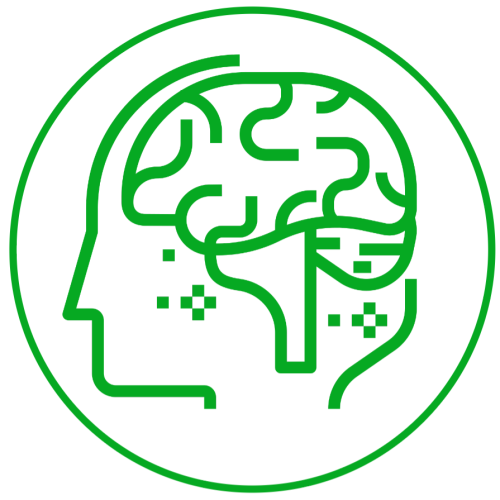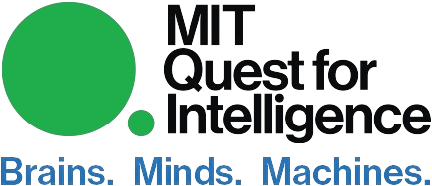Matter of Minds
Building the Science of Natural and Artificial Intelligence

Learn about recent research in natural intelligence and current topics in AI at MIT.
On Monday, November 4, 2024, the Quest hosted a day of research and demonstration from the neuroscientists, cognitive scientists, computer scientists, and software engineers who are creating the science of intelligence.
MIT's Quest for Intelligence couples scientific enquiry and rigorous engineering to address real-world challenges that are beyond machine capabilities but within the ability of natural intelligence.
Recordings of sessions are available.
Speakers
-
 Director, MIT Quest Systems EngineeringProfessor, Department of Aeronautics and AstronauticsComputer Science and Artificial Intelligence Laboratory
Director, MIT Quest Systems EngineeringProfessor, Department of Aeronautics and AstronauticsComputer Science and Artificial Intelligence Laboratory- Machine Learning
- Efficient AI
- AI Robotics
MissionsProjects -
 Director of Research, MIT Quest for IntelligencePanasonic Professor, Department of Electrical Engineering and Computer ScienceComputer Science and Artificial Intelligence Laboratory
Director of Research, MIT Quest for IntelligencePanasonic Professor, Department of Electrical Engineering and Computer ScienceComputer Science and Artificial Intelligence Laboratory- AI Robotics
- Machine Learning
- Computer Vision
Missions -
 Director of Science, MIT Quest for IntelligenceProfessor, Department of Brain and Cognitive SciencesComputer Science and Artificial Intelligence Laboratory
Director of Science, MIT Quest for IntelligenceProfessor, Department of Brain and Cognitive SciencesComputer Science and Artificial Intelligence Laboratory- Computational Cognition
- Machine Learning
- AI Explainability
-
 Principal Research Scientist, Department of Brain and Cognitive Sciences
Principal Research Scientist, Department of Brain and Cognitive Sciences -
 Associate Professor of Neuroscience, Department of Brain and Cognitive SciencesInvestigator, McGovern Institute for Brain Research
Associate Professor of Neuroscience, Department of Brain and Cognitive SciencesInvestigator, McGovern Institute for Brain Research- Natural Language Processing
Missions -
 Walter A. Rosenblith Professor, Department of Brain and Cognitive SciencesInvestigator, McGovern Institute for Brain Research
Walter A. Rosenblith Professor, Department of Brain and Cognitive SciencesInvestigator, McGovern Institute for Brain Research- Computational Cognition
- Computational Neuroscience
Missions -
 Associate Professor, Department of Electrical Engineering and Computer ScienceComputer Science and Artificial Intelligence Laboratory
Associate Professor, Department of Electrical Engineering and Computer ScienceComputer Science and Artificial Intelligence Laboratory- Natural Language Processing
- Machine Learning
Missions -
 John W. Jarve (1978) Professor, Brain and Cognitive SciencesAssociate Dean, School of ScienceMissions
John W. Jarve (1978) Professor, Brain and Cognitive SciencesAssociate Dean, School of ScienceMissions -
 John and Dorothy Wilson Professor, Department of Brain & Cognitive SciencesAssociate Department Head, Department of Brain and Cognitive SciencesMacVicar Faculty FellowProjects
John and Dorothy Wilson Professor, Department of Brain & Cognitive SciencesAssociate Department Head, Department of Brain and Cognitive SciencesMacVicar Faculty FellowProjects
Schedule
Morning session
Registration
Welcome Remarks MIT President Sally Kornbluth
What the Quest Is / A Roadmap for the Day Professor Jim DiCarlo, Director of the MIT Quest for Intelligence
Language and the Development of Thought: A conversation led by Professor Josh Tenenbaum, BCS
Rebecca Saxe, John W. Jarve Professor of Cognitive Neuroscience (BCS), Associate Dean of the School of Science
Laura Schulz, John and Dorothy Wilson Professor and Associate Department Head (BCS)
Ev Fedorenko, Associate Professor (BCS)
Jacob Andreas, Associate Professor (EECS)
Exhibitions and Demonstrations (Lunch)
Afternoon session
Building Machines and Making Them Intelligent A conversation led by Professor Nick Roy, Aero-Astro
Leslie Kaelbling, Panasonic Professor (EECS), Quest Director of Research
Nancy Kanwisher, Walter A. Rosenblith Professor of Cognitive Neuroscience (BCS)
Jim DiCarlo, Peter de Florez Professor (BCS), Director of the Quest for Intelligence
Vikash Mansinghka, Principal Research Scientist (BCS), Quest Director of Modeling and Inference
Fireside Chat with Dr. David Siegel SM ’86 PhD ’91, hosted by Dean Dan Huttenlocher, Schwarzman College of Computing
Closing Remarks Professor Jim DiCarlo
